Best Home Remedies for Sunburn
By Dr Smita Barode +2 more

Get,

to manage your symptom
Get your,


4 Cr+ families
benefitted

OTP sent to 9988776655



You’ve successfully subscribed to receive
doctor-approved tips on
Whatsapp

Get ready to feel your best.

Hi There,
Download the PharmEasy App now!!


Register to Avail the Offer
Send OTPBy continuing, you agree with our Privacy Policy and Terms and Conditions

Hi There,
Sign up on PharmEasy now!!
Trusted by 4 crore+ families

OTP sent to 9988776655



You have unlocked 25% off on medicines




Code: NU25
By Dr Smita Barode +2 more
Table of Contents
You might want to go out for a picnic or a quick swim to break the summer heat. These activities are all fun and games till you get sunburns.
Skin damage due to excessive exposure to ultraviolet (UV) rays present in sunlight is called sunburn. You can also get sunburns from artificial sources of UV light, such as tanning beds. Sunburn is instead a radiation burn1. You can notice a sunburn within 11 minutes of exposure. The skin will start turning red within two to six hours. Your skin will continue to develop sunburn for the next few days. Depending on the severity of your sunburn, it might take a few days or weeks for the skin to heal.

If you have a mild sunburn, you can take care of it at home. However, a severe and blistered sunburn requires immediate medical attention. Getting a sunburn repeatedly can cause premature skin wrinkling and skin cancer in the long run2. So, it’s best to take necessary precautions and avoid sunburns.
Adequate exposure to sunlight is essential to get sufficient vitamin D which is important for bone health and immune system function. It is also important to prevent oneself from sunburn as prolonged exposure is implicated in the causation of skin cancer.
Dr. Ashish Bajaj, M.B.B.S., M.D. in Clinical Pharmacology and Toxicology
Sunburns occur because of overexposure to UV radiation. You can develop sunburn when the UV exposure overpowers melanin’s ability to protect the skin. If you have light skin colour, you may develop a sunburn within 15 minutes of sun exposure. People with dusky skin tones tolerate sun exposure for hours without developing a sunburn3.
Risk factors for developing a sunburn:
Sunburns are categorised into three types depending on the severity of skin damage. Common types of sunburn include:
In rare circumstances, people may develop a third-degree sunburn. This type of damage can cause severe damage to all skin layers and destroy nerves. This requires emergency medical care and treatment.
Prevention is easy and straightforward. A broad-spectrum sunscreen with SPF of at least 30 should be applied 30 minutes before sun exposure and every 90 minutes, after that. Water resistant sunscreen should be considered and frequently reapplied when spending time in the water. Sun protective clothing should be worn as an added barrier.
Dr. M.G. Kartheeka, MBBS, MD(Pediatrics)
Symptoms of sunburn vary depending on the severity of the burn.
Symptoms of first-degree sunburn are:
Symptoms of second-degree sunburn are:
Second-degree burns might be accompanied by heat illness. Symptoms of heat illness include:
Symptoms of a third-degree sunburn include:
Below are some remedies that you can use to care for sunburned skin at home. Although these home remedies can be used for minor sunburns, you need to reach out to your healthcare professional and receive help if you have a severe form of sunburn.

You need to drink more water to stay hydrated when dealing with a sunburn. Sunburns draw the water from the body to the skin surface, rendering the person dehydrated. Drinking excess water can help you prevent dehydration caused by sunburns4.
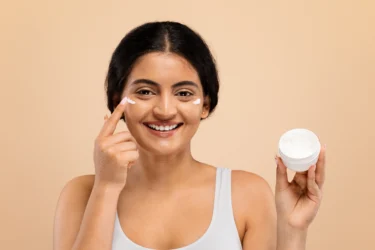
You can apply a good moisturiser to the affected area if your skin is not too painful to touch. Using a moisturiser that contains aloe vera or soy can help you soothe the sunburned skin. Moisturiser will help boost the moisture content of the skin. Avoid using butter on the sunburned skin. If you use butter or petroleum jelly, or any other oil-based product on the affected skin, it might block the skin pores and lead to an infection2,4.
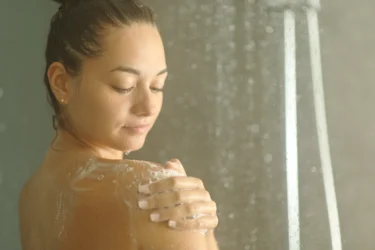
You can try taking cool baths or showers frequently. It will help you reduce the pain. Pat yourself dry after coming out of the shower but remember to leave some water on the skin. Applying a good moisturiser straight after the shower will help you retain the moisture in the skin4.
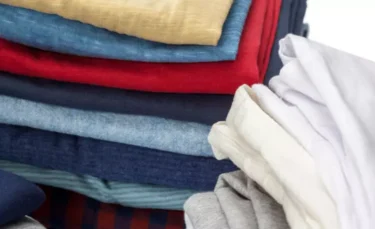
You need to protect the sunburned skin as it heals. Before venturing out, wear clothes that cover your skin. Wear clothes made of tightly woven fabrics. A tightly woven fabric does not allow light to come through when you hold it against a bright light. You can also try wearing loose cotton clothing3,4.
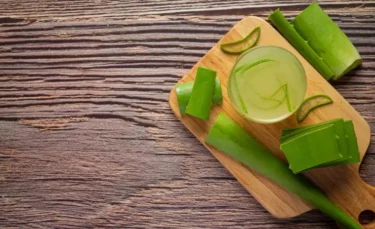
Aloe vera is an essential natural ingredient for dealing with many skin conditions. You can use aloe vera to relieve sunburns. It can also get rid of itching and help heal the blisters. It also provides a soothing sensation to the skin due to vitamin C and vitamin B. You can use aloe vera gel to aid in healing sunburned skin. Aloe vera gel can be rubbed directly on the affected area5.

Tea is an ingredient that most people have in their kitchens. It is a common home remedy used to relieve sunburns. You can apply cooled black tea directly to the sunburned skin. Certain compounds present in black tea help remove the heat from the sunburned skin. Black tea might help repair skin damage and prevent cancer6.

Green tea has good anti-inflammatory and antioxidant properties. It helps to deal with adverse reactions on the skin, like sunburn after UV exposure. It can help reduce skin redness and skin damage. Green tea can be applied to the sunburned area to relieve skin damage6.
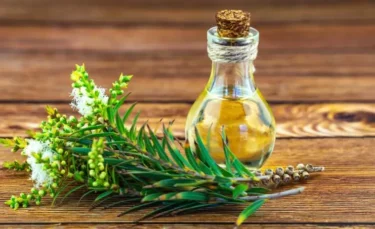
Tea tree oil is a popular ingredient found in many sunscreen products. Tea tree oil can help manage sunburn by improving the blood flow to the skin’s blood vessels, bringing essential nutrients to the damaged skin6. To use tea tree oil, dilute it with some carrier oils like coconut, almond, or olive. Avoid using pure tea tree oil directly on the affected skin.
Also Read: Best Home Remedies for Clear Skin
If you notice any of the signs mentioned below, you should contact your healthcare provider.
Also Read: Home Remedies For Tanned Skin
Sunburn is nothing but skin damage due to overexposure to ultraviolet radiation. Depending on the severity of sunburn, it can take a few days to a few weeks to heal completely. Getting sunburned frequently can increase your risk of skin cancer. Sunburns can be taken care of at home. You can use some at-home remedies to relieve sunburns and their symptoms. For example, ingredients like aloe vera, green tea, and tea tree oil can be used to relieve sunburns. If your sunburn is minor, which is a first-degree sunburn, it might heal on its own after some time. In case of severe sunburn, you need to contact your healthcare provider and receive timely treatment.
Herbal home remedies for relieving sunburn include aloe vera gel, green tea, black tea, and tea tree oil. Other home remedies for sunburn are moisturising, avoiding dehydration, taking cool showers, and protecting the sunburned area from further damage. Minor sunburns can heal at home on their own, but if your sunburn is severe, you need to seek medical help4,6.
You can prevent yourself from getting sunburned if you:
Use a broad-spectrum sunscreen with a sun protection factor (SPF) of 30 or higher. Apply enough sunscreen to cover the exposed skin completely. Reapply the sunscreen every two hours.
Wear a lip balm that offers sun protection.
Wear sunglasses that provide UV protection.
Stay indoors when the solar radiation is the strongest, between 10 AM to 4 PM.
Wear a hat with a brim.
Wear protective clothing in lighter shades3.
You can use aloe vera gel to relieve sunburns. Aloe vera gel can be used directly on sunburned skin. It helps soothe the skin and heal blisters. Aloe vera gel can also help in getting rid of the itching5.
Tea tree oil improves the flow of blood in the blood vessels of the skin, which helps bring nutrients to the skin and promotes the healing of the sunburned skin6. To use tea tree oil, you can dilute it with some carrier oils like almond, olive, or coconut. Apply the diluted oil to the skin to heal the sunburned skin.
There is no instant cure for sunburns. The healing time of sunburns depends on the severity of the skin damage. It can take a few days to some weeks for sunburned skin to heal. First-degree sunburns, which are minor ones, can take a few days to weeks to heal completely. Whereas second-degree sunburns need several weeks to heal1.
1. Cleveland Clinic. Sunburn: Causes, Symptoms and Treatment [Internet]. [cited 2022 May 27]. Available from: https://my.clevelandclinic.org/health/diseases/21858-sunburn
2. Better Health Channel. Sunburn [Internet]. [cited 2022 May 27]. Available from: https://www.betterhealth.vic.gov.au/health/conditionsandtreatments/sunburn
3. MedlinePlus Medical Encyclopedia. Sunburn [Internet]. [cited 2022 May 27]. Available from: https://medlineplus.gov/ency/article/003227.htm
4. American Academy of Dermatology Association. How to treat sunburn [Internet]. [cited 2022 May 27]. Available from: https://www.aad.org/public/everyday-care/injured-skin/burns/treat-sunburn
5. January A ·, Qadir MI. Medicinal and cosmetological importance of Aloe vera. International Journal of Natural Therapy. 2009;2:21–6. Available from: http://www.researchgate.net/publication/233818204
6. Korać RR, Khambholja KM. Potential of herbs in skin protection from ultraviolet radiation. Pharmacognosy Reviews. 2011 Jul;5(10):164. Available from: https://www.ncbi.nlm.nih.gov/pmc/articles/PMC3263051/
Disclaimer: The information provided here is for educational/awareness purposes only and is not intended to be a substitute for medical treatment by a healthcare professional and should not be relied upon to diagnose or treat any medical condition. The reader should consult a registered medical practitioner to determine the appropriateness of the information and before consuming any medication. PharmEasy does not provide any guarantee or warranty (express or implied) regarding the accuracy, adequacy, completeness, legality, reliability or usefulness of the information; and disclaims any liability arising thereof.
Links and product recommendations in the information provided here are advertisements of third-party products available on the website. PharmEasy does not make any representation on the accuracy or suitability of such products/services. Advertisements do not influence the editorial decisions or content. The information in this blog is subject to change without notice. The authors and administrators reserve the right to modify, add, or remove content without notification. It is your responsibility to review this disclaimer regularly for any changes.
Comments

Leave your comment...
You may also like
Comments